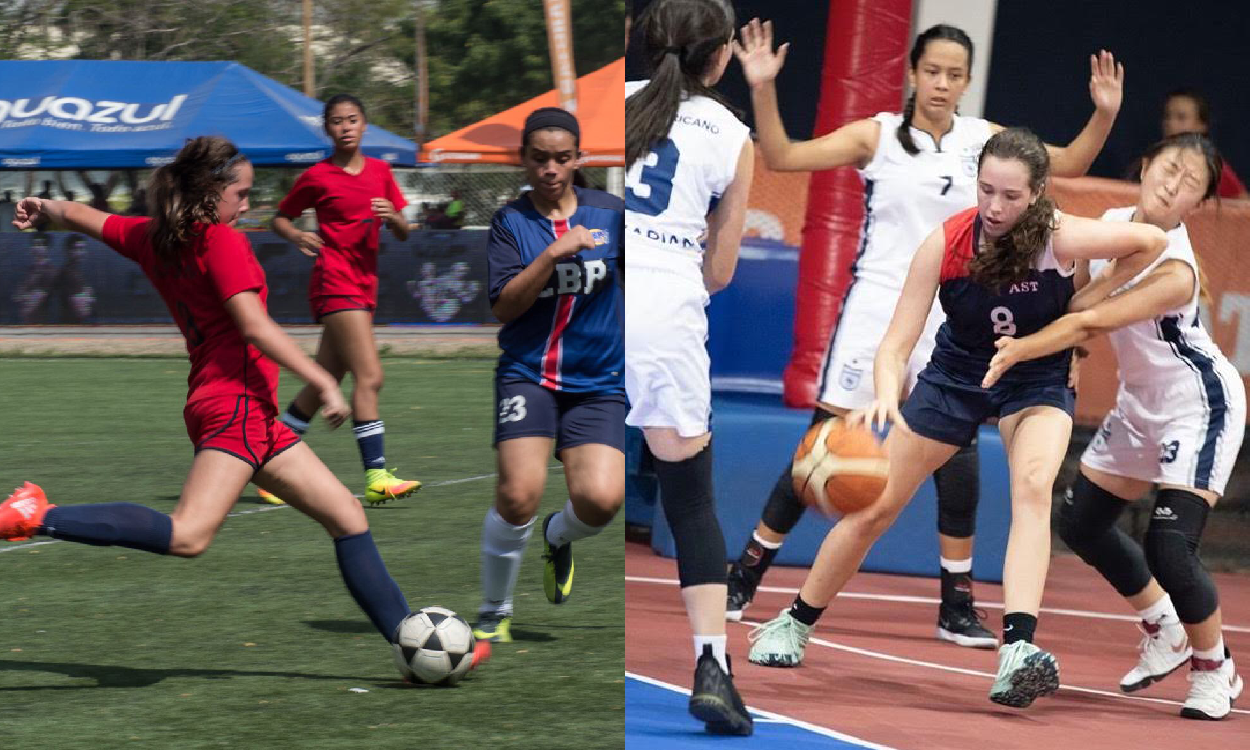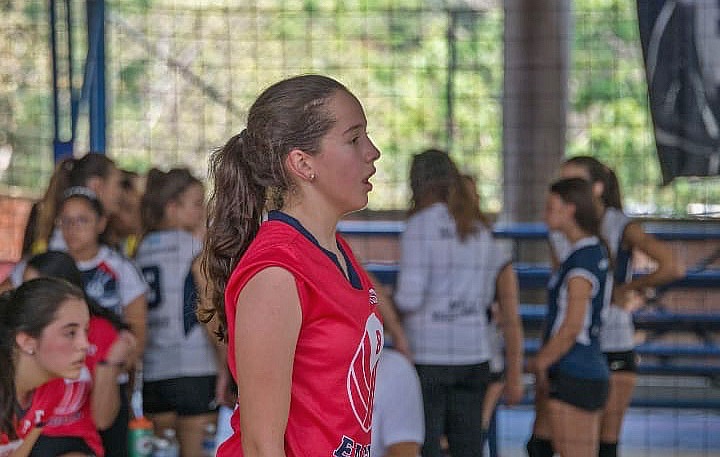
The Impact of Title IX: Beyond Sport Youth Advisory Board Member Carolina Agurcia Shares
June 10, 2022
In recognition of the upcoming 50th anniversary of Title IX on June 23, this month we are speaking to several individuals from our network to get their thoughts on the impact of the historic legislation and their own experiences. Today, read our Q&A with Beyond Sport Youth Advisory Board (YAB) member, Carolina Agurcia.
The landmark Title IX of the Education Amendments of 1972 legislation in the United States prohibits sex discrimination (including pregnancy, sexual orientation and gender identity) in any education program or activity receiving federal financial assistance. Since its passage, Title IX has positively impacted the lives of millions of people with its non-discrimination protections applying to student recruitment, admissions, educational programs, research, housing, financial and employment assistance, health and insurance benefits, as well as health services. Although the law – requiring equal opportunity under any educational program or activity regardless of gender – isn’t specific to sports, it has greatly contributed to efforts to help level the playing field for women and girls in sports.
YAB member, Carolina splits her time between her home of Tegucigalpa, Honduras and Cornell University in Ithaca, New York where she is studying Human Development. As co-founder of the non-profit, Alzando laVoz (Raising our Voice), she is raising the alarm on the emotional, verbal and physical abuse women face in Honduras and educates on the issue. At school, she volunteers with Rally Cap Sports, working with children and adolescents with disabilities so that they have increased opportunities to exercise and to play sports. She strongly believes that everyone has the right to do what they are passionate about and that people with disabilities should not be an exception.
Carolina spoke to us about how Title IX made her feel protected once she’d started at Cornell University, but that there’s still a lot left to be done in order to achieve an equal playing field for women and girls in sports.

What is your personal experience with sport?
I had the honor of being able to participate in soccer, basketball and volleyball while in high school. Our teams were able to participate in multiple national and Central American tournaments every year, which were some of the best experiences I have had. At Cornell, I participate in intramural sports and volunteer for the Ithaca Youth Bureau sports programs, where I have helped as the assistant coach for flag football and basketball. They have all been amazing experiences that have helped me learn in many ways.
Can you explain the importance of equitable access for women and girls in sports?
It’s important for girls to have the same opportunities as boys because one’s sex, one's gender, one’s sexuality, etc. does not define the type of qualifications that one has. Representation matters and if young girls see other women doing what they would like to, do someday in the future, they will know that it is possible to dream big. Especially for young kids, it’s important for them to know that everyone is capable of anything. It’s important for young boys to grow up knowing that girls are just as capable as they are and for young girls to know that they can do anything they propose themselves to do. Everyone deserves the opportunity to showcase their talents and skills no matter their gender.
Has Title IX directly impacted you?
I was born and raised in Honduras; therefore, Title IX didn’t really have a direct impact on my life until I moved to the United States for college. One of the first things that the university had us do was to take a short course on “Understanding Title IX”. Receiving this course made me feel safer and protected. While there is still a lot that must be done to improve equality for women around the world, knowing that there is an act that prohibits sex-based discrimination and being informed about the resources that can support me and other women made me feel extremely hopeful.
What are the top things that need to be addressed in the fight for equality for women in sports?
Particularly in sports, there is so much work that still needs to be done. However, I do believe that equal pay, equal representation, as well as respectful and accurate representation in the media, are necessary for our fight for equality. Research on the representation of female athletes on different media platforms shows the continued sexualization and perpetuation of gender stereotypes towards women. What is most important in my opinion, however, is the complete acknowledgment that the sports industry has been and continues to be a male-dominated industry; the acknowledgment that women have been fighting an uphill battle. With this acknowledgment, leaders and voices in the sports industry must actively work for women to feel listened to, respected and treated as equals.
The impact of Title IX is still strong after 50 years. What do you feel is a current achievement in women’s sports that can have far-reaching effects?
A big and recent triumph in women’s sports was the equal pay settlement for the US Women's National Team (USWNT). Not only is this a big win for the USWNT, but a win for women's sports in general. It sets a precedent for other sports, other countries and future generations of athletes. It gives hope about what is to come and what can be done for women in sports all over the world. Most importantly, it continues to show future generations of young girls that it is more than okay to dream big and fight for what you believe in.
If a young girl was to ask you, ‘what do I need to do to be successful as a female in sports?’ what would you say to her?
I would tell her to keep going, to not give up on her dreams and to find a community of women that are going to support her and help her on the journey. I always thought that it would be impossible to become a part of the sports industry, but as I have met and connected with people, both men and women, that are willing to share their experiences and offer their support, I have felt it more and more possible.
I would tell her to actively work for that dream of hers, to actively work towards what she wants to become and to not be afraid to reach out and ask questions. It’s surprising to see how many people are willing to help and support you on your unique journey.
We are looking forward to having Carolina intern with us in our London office this Summer.